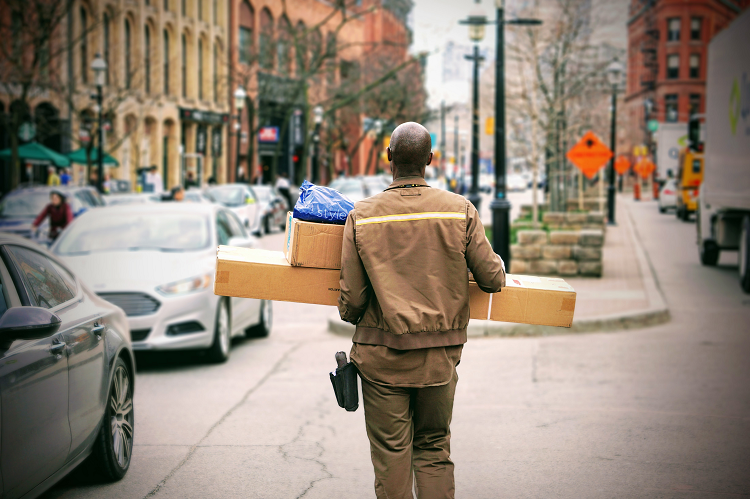 Source: Maarten van den Heuvel on Unsplash
Source: Maarten van den Heuvel on Unsplash
Smart Lock – When the package deliverer no longer needs to ring
24. January 2019 Published by Raphael DoerrSmart door locks could make the daily work of many package deliverers easier. A YouGov survey of 1,682 persons aged 18 and above has revealed that every one in five Germans (21 percent) can imagine using an in-home delivery service.
The final stage of delivering a parcel is not only the most expensive, because it’s necessary to drive to an address several times before the customer is there to take delivery. It’s often the case that delivery doesn’t go ideally for the customer either: They have to drive to package lockers, knock on their neighbor’s door or ask for their consignment at the shop round the corner. However, that could change with in-home delivery. A smart door lock and a door opener are required for that – and you can open the door for the deliverer even if you’re not at home. Optional video transmission even means you can tell the deliverer where exactly to put the parcel. Pie in the sky? It is for many Germans – for now.
The willingness is there
The international market research and consulting institute YouGov has now examined in an analysis how willing Germans are to use in-home delivery. In a standardized online interview, 1,682 persons aged 18 and above were asked “Imagine you could equip your home with a smart door lock and door opener and thus open the door to the package deliverer when you’re not there. You might also interact remotely with the deliverer by video transmission. Can you imagine parcels being delivered for you in this way?”

“The results of the analysis indicate that every one in five Germans can imagine that. That trend is exciting for Gigaset as a manufacturer of smart home technology because it shows what great potential there is in the field of smart delivery methods,” says Dirk Kelbch, Senior Vice President Smart Home at Gigaset. However, there is still quite a lot of skepticism, especially among women – while 26 percent of men could imagine smart door locks, that figure is just 18 among women. “We believe that’s mainly because there simply aren’t yet many positive application cases that clearly highlight the advantages. There’s still too little technology on the market. And Germans are very security-conscious. That’s shown very clearly by our experience in the smart home arena,” adds Kelbch.
A closer look at the results reveals that just under a third (31 percent) of respondents with a net household income of more than €3,000 a month can imagine using smart locks. A look at the age groups shows that people between 25 and 54 are more open to the subject – a quarter of those surveyed displayed an interest.
Dirk Kelbch definitely intends to keep his eye on the market: “Initially using the service for our own sales would be conceivable, but of course also with other cooperation partners, such as Nuki or with regard to premium services. It would enable us to offer genuine value added and thus improve the whole customer experience when a product is purchased – and delivery is also part of that. If a smart lock is a component in an extensively equipped smart home, security in your own four walls can be monitored very well.”
 Comments
Comments
 en
en 







